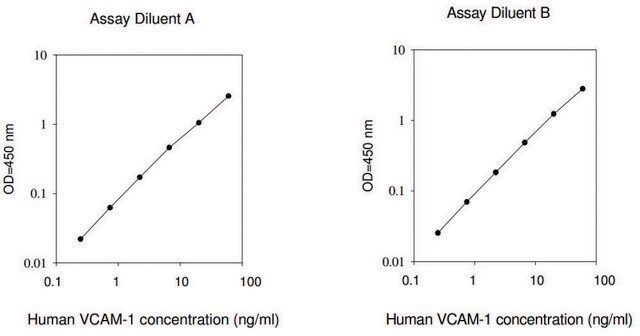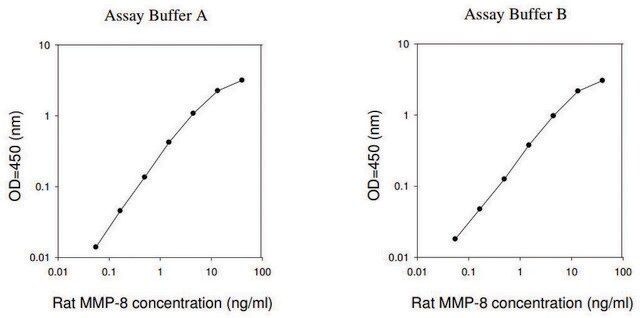S100-05N
Human Dermal Microvascular Endothelial Cells: CADMEC/HMVEC: Pre-Screened for Angiogenesis & VEGF signaling, neonatal
Anmeldenzur Ansicht organisationsspezifischer und vertraglich vereinbarter Preise
Alle Fotos(3)
About This Item
UNSPSC-Code:
41106514
NACRES:
NA.81
Empfohlene Produkte
Biologische Quelle
human blood vessels
Qualitätsniveau
Verpackung
pkg of 500,000 cells
Hersteller/Markenname
Cell Applications, Inc
Wachstumsmodus
Adherent
Karyotyp
2n = 46
Morphologie
Endothelial
Methode(n)
cell culture | mammalian: suitable
Versandbedingung
dry ice
Lagertemp.
−196°C
Allgemeine Beschreibung
Lot specific orders are not able to be placed through the web. Contact your local sales rep for more details.
Endothelial cells (EC) line the blood vessels of the entire circulatory system, from aorta to capillaries, and act as a barrier between circulating blood and the rest of the vessel wall/surrounding tissues. Endothelial cells are involved in the processes of angiogenesis, vasculogenesis, vasoregulation, coagulation, fibrinolysis and selective blood barrier. They are also implicated in pathophysiological processes, including cardiovascular disease and cancer development.
The most commonly used human endothelial cells are Human Umbilical Vein Endothelial Cells, (HUVEC), Human Microvascular Endothelial Cells (HMVEC) and Human Aortic Endothelial Cells (HAOEC). Select lots of HUVEC, HMVEC, and HAOEC have been pre-screened to demonstrate stimulation-dependent angiogenesis and key endothelial cell signaling pathways (phosphorylation of VEGFR, Akt, MAPK, and expression of Tie2, eNOS, Axl and Etk/Bmx.
VEGF-Stimulated Signaling in Pre-Screened Endothelial Cells
VEGF receptor-2 (VEGFR-2) is a major VEGF of endothelial cells. VEGFR-2-mediated signaling plays a critical role in angiogenesis, including regulation of proliferation, differentiation, cell movement, and survival of endothelial cells. VEGF-induced receptor dimerization triggers activation of VEGFR-2 tyrosine kinase and autophosphorylation at a specific set of tyrosine residues, which serve as docking sites for downstream signaling components leading to activation of downstream signaling molecules, including phosphorylation of Akt and p44/42-MAPK.
Expression of Signaling Biomarkers in Pre-Screened Endothelial Cells
Prescreened Endothelial Cells express the following important biomarkers:
Endothelial cells (EC) line the blood vessels of the entire circulatory system, from aorta to capillaries, and act as a barrier between circulating blood and the rest of the vessel wall/surrounding tissues. Endothelial cells are involved in the processes of angiogenesis, vasculogenesis, vasoregulation, coagulation, fibrinolysis and selective blood barrier. They are also implicated in pathophysiological processes, including cardiovascular disease and cancer development.
The most commonly used human endothelial cells are Human Umbilical Vein Endothelial Cells, (HUVEC), Human Microvascular Endothelial Cells (HMVEC) and Human Aortic Endothelial Cells (HAOEC). Select lots of HUVEC, HMVEC, and HAOEC have been pre-screened to demonstrate stimulation-dependent angiogenesis and key endothelial cell signaling pathways (phosphorylation of VEGFR, Akt, MAPK, and expression of Tie2, eNOS, Axl and Etk/Bmx.
VEGF-Stimulated Signaling in Pre-Screened Endothelial Cells
VEGF receptor-2 (VEGFR-2) is a major VEGF of endothelial cells. VEGFR-2-mediated signaling plays a critical role in angiogenesis, including regulation of proliferation, differentiation, cell movement, and survival of endothelial cells. VEGF-induced receptor dimerization triggers activation of VEGFR-2 tyrosine kinase and autophosphorylation at a specific set of tyrosine residues, which serve as docking sites for downstream signaling components leading to activation of downstream signaling molecules, including phosphorylation of Akt and p44/42-MAPK.
Expression of Signaling Biomarkers in Pre-Screened Endothelial Cells
Prescreened Endothelial Cells express the following important biomarkers:
- Tie2, a receptor tyrosine kinase critical for the angiogenic remodeling, sprout formation, survival of endothelial cells and vessel stabilization processes; eNOS (endothelial Nitric Oxide Synthase), the enzyme that producse NO which is an important signaling molecule that regulates a diverse range of physiological events and is required for normal endothelial function;
- Axl, a receptor tyrosine kinase whose ligand is the survival factor Gas6 (growth arrest-specific gene 6 product) implicated in many processes, such as cell survival, leukocyte transmigration and neointima formation.
- Etk/Bmx (Endothelial/epithelial Tyrosine Kinase), a member of the Btk family, participates in signal transduction stimulated by growth factor receptors, cytokine receptors, G-protein-coupled receptors, antigen receptors, and integrins, and has been implicated in cell adhesion, migration, proliferation, and survival.
Ursprung der Zelllinie
Blood Vessels
Anwendung
Endothelial vessel function, cell signaling, angiogenesis
Komponenten
Cell Basal Medium containing 10% FBS & 10% DMSO
Angaben zur Herstellung
- 2nd passage, >500,000 cells in Cell Basal Medium containing 10% FBS & 10% DMSO
- Can be cultured at least 16 doublings
Subkultur-Routine
Please refer to the CADMEC/HMVEC Culture Protocol.
Haftungsausschluss
RESEARCH USE ONLY. This product is regulated in France when intended to be used for scientific purposes, including for import and export activities (Article L 1211-1 paragraph 2 of the Public Health Code). The purchaser (i.e. enduser) is required to obtain an import authorization from the France Ministry of Research referred in the Article L1245-5-1 II. of Public Health Code. By ordering this product, you are confirming that you have obtained the proper import authorization.
Lagerklassenschlüssel
11 - Combustible Solids
WGK
WGK 3
Flammpunkt (°F)
Not applicable
Flammpunkt (°C)
Not applicable
Analysenzertifikate (COA)
Suchen Sie nach Analysenzertifikate (COA), indem Sie die Lot-/Chargennummer des Produkts eingeben. Lot- und Chargennummern sind auf dem Produktetikett hinter den Wörtern ‘Lot’ oder ‘Batch’ (Lot oder Charge) zu finden.
Besitzen Sie dieses Produkt bereits?
In der Dokumentenbibliothek finden Sie die Dokumentation zu den Produkten, die Sie kürzlich erworben haben.
Unser Team von Wissenschaftlern verfügt über Erfahrung in allen Forschungsbereichen einschließlich Life Science, Materialwissenschaften, chemischer Synthese, Chromatographie, Analytik und vielen mehr..
Setzen Sie sich mit dem technischen Dienst in Verbindung.





